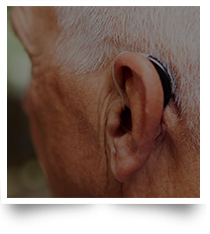Head & Neck Services
Hoarseness
There are many factors that cause hoarseness. Some are smoking, vocal cord tumors, throat cancer or persistent coughing. At Rocky Mountain ENT, we use laryngoscopy to examine the voice box (larynx), which contains the vocal cords, by placing mirrors and a light source at the back of the throat, or by inserting a thin, flexible tube called a laryngoscope down the throat to produce images.
The results of the laryngoscope procedure are available right away and can be reviewed with the patient after the procedure. Your doctor may also analyze these results later on to detect any abnormalities within the throat and vocal cords. A treatment plan will then be discussed.
Lesions of the Head, Oral Cavity or Tongue
Surgical excision is recommended for malignant (cancerous) and certain benign (non-cancerous) skin lesions. In most cases, curretage is performed after the lesion is numbed via freezing or local anesthesia. A small amount of surrounding tissue is removed as well to ensure that all malignant cells are excised.
Parotid or Neck Mass
A neck mass is a common childhood condition that involves swelling that changes the shape of the neck. Neck masses do not usually cause any symptoms and often disappear on their own.
They may be caused by:
- Enlarged lymph node caused by infection
- Inflamed or infected cyst
- Trauma
- Inflammation of salivary glands/parotid glands
- Tumor
Neck masses caused by infection can be painful and may require antibiotic treatment. Those that last more than a few weeks should undergo diagnostic testing.
Skull Base Tumor
Tumors often develop in or spread to the skull base, the area behind the eyes and nasal cavities that encompasses the “floor” of the skull. These tumors can be malignant or benign and may lead to complications with the nerves, blood vessels and spinal cord, all of which pass through the skull base area.
Whether benign or malignant, nearly all skull base tumors require treatment to remove the tumor and prevent complications as the tumor grows or cancer spreads. Treatment for skull base tumors may involve surgery, radiation therapy, chemotherapy or a combination of these approaches.
Swallowing Disorders
Dysphagia, or swallowing disorder, is a term used to describe the inability to move food from the mouth to the stomach. This condition can accompany a neurological disorder such as stroke, Parkinson’s disease, cerebral palsy, Lou Gehrig’s Disease, etc., as well as bacterial, viral, or fungal infections. Dysphagia can occur at any of the 3 stages of swallowing: oral, pharyngeal, and esophageal.
Depending on the type of swallowing disorder, changing a person’s diet by adding thickeners and physical therapy may help alleviate the problem in noninvasive ways. Sometimes drug therapy helps relieve symptoms of the underlying neurological cause and thus relieves the swallowing problems. Less commonly, botulinum toxin injections can be used when food or liquid cannot enter the esophagus. Severely affected individuals may require surgery or feeding tubes.







